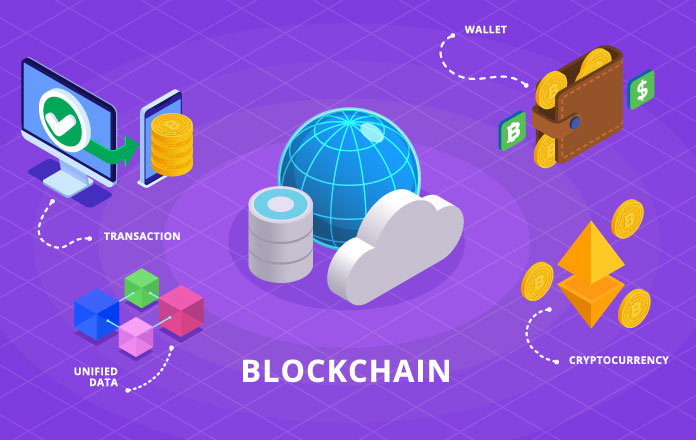In the ever-evolving landscape of blockchain technology, the Internet of Blockchains has emerged as a groundbreaking paradigm that promises to redefine how we perceive connectivity, interoperability, and decentralization. As the blockchain ecosystem expands the need for seamless communication and collaboration between diverse blockchain networks has become increasingly apparent. The Internet of Blockchains seeks to address this challenge by creating a decentralized and interconnected web of blockchains, paving the way for a more robust and scalable decentralized future.
The Rise of Blockchain Interoperability
Blockchain technology has ushered in a new trust, transparency, and security. However, the lack of interoperability between several blockchain networks has hindered its widespread adoption and potential impact. The Internet of Blockchains aims to bridge this gap by establishing a framework that enables these distributed ledgers to communicate and transact seamlessly.
Interoperability within the Internet of Blockchains framework facilitates the transfer of assets and information between distinct blockchains, overcoming the limitations of siloed ecosystems. This interconnectedness enhances the overall efficiency of blockchain networks and opens the door to innovative use cases.
Read More: Cigniti Technologies: For How Long CIOs Would Pause the Blockchain Button?
The Key Components of the Internet of Blockchains
Cross-Chain Communication Protocols:
The Internet of Blockchains relies on sophisticated protocols that facilitate communication and data exchange between disparate blockchains. These protocols, often referred to as cross-chain communication protocols, play a pivotal role in enabling interoperability by ensuring a standardized way for blockchains to interact.
Smart Contracts and Oracles:
Smart contracts, self-executing contracts with the terms of the agreement directly written into code, are essential components of the Internet of Blockchains. These contracts streamline and automate complex transactions between different blockchains. Oracles, on the other hand, act as bridges between the blockchain and real-world data, ensuring that smart contracts can be executed based on accurate and up-to-date information.
Consensus Mechanisms:
Consensus mechanisms are crucial for maintaining the integrity and security of the Internet of Blockchains. They play a vital role in validating transactions and ensuring that all connected blockchains reach an agreement on the state of the network. Various consensus mechanisms, including Proof-of-Stake (PoS) and Delegated Proof-of-Stake (DPoS), are employed to secure the interconnected blockchain ecosystem.
Real-world Applications of the Internet of Blockchains
Decentralized Finance (DeFi):
The Internet of Blockchains facilitates seamless transactions and asset transfers across decentralized finance platforms. This interconnected financial ecosystem allows users to access various financial services, such as lending, borrowing, and trading, without being confined to a single blockchain network.
Supply Chain Management:
The Internet of Blockchains improves supply chain transparency and traceability by enabling data sharing and validation among different blockchains. This ensures that stakeholders across the supply chain have access to accurate and real-time information, reducing inefficiencies and mitigating fraud risks.
Cross-Border Payments:
The Internet of Blockchains has the potential to revolutionize cross-border payments by connecting disparate financial systems. This could lead to faster and more cost-effective international transactions, eliminating the need for intermediaries and reducing friction in the global financial landscape.
Challenges and Future Outlook
While the Internet of Blockchains holds immense promise, it has its challenges. Technical complexities, security concerns, and the need for standardization pose hurdles that must be addressed for widespread adoption. Moreover, achieving consensus among diverse blockchain communities and overcoming regulatory barriers are essential for the Internet of Blockchains to reach its full potential.
As the blockchain space continues to evolve, the Internet of Blockchains is poised to play a pivotal role in shaping the future of decentralized connectivity. With ongoing research, development, and collaboration within the blockchain community, we anticipate a more interconnected, efficient, and inclusive decentralized ecosystem that transcends the limitations of individual blockchains. The journey towards the Internet of Blockchains signifies a transformative step towards a decentralized future where collaboration and interoperability are at the forefront of technological innovation.




